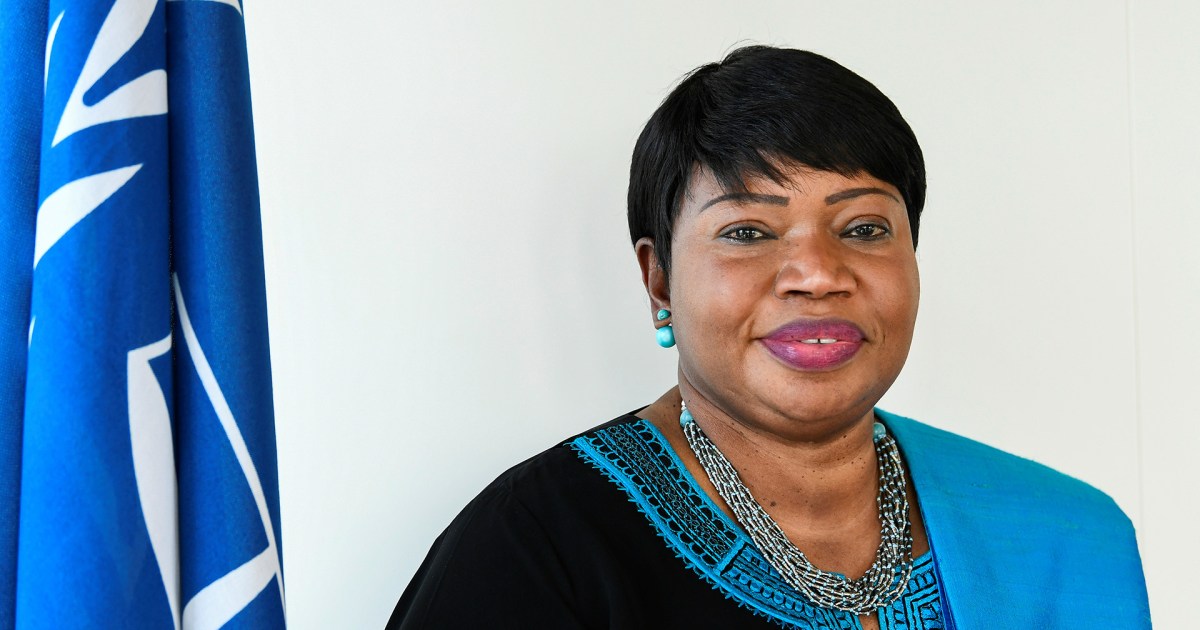The Prosecutor of the International Criminal Court, Fatou Bensouda, said - in an interview - that the participants in a new round of bloodshed in the current conflict in the Palestinian territories may be the targets of an investigation that the court is now conducting into alleged war crimes in previous rounds of the conflict.
Bensouda told Reuters that she is proceeding with her investigation even without the cooperation of Israel, which accuses the Office of the Prosecutor of bias based on motives of anti-Semitism and also - like its closest US ally - refuses to join the court, and rejects its jurisdiction.
The fiercest round of fighting since 2014 between Israel and Palestinian factions erupted this week, with Israel launching punitive air strikes on Gaza and militants in the densely populated enclave firing more than 1,600 rockets at Israel.
At least 110 Palestinians were killed and 621 wounded in the Israeli bombardment of Gaza, while 9 Israelis were killed and 130 others were injured by rockets fired by the Palestinian resistance from Gaza, according to official sources on which the island relied.
Bensouda said, "We are watching these events with great interest. We are following (the situation) closely, and I remind you that there is an open investigation, and that the developments of these events could become under consideration by us as well."
Last March, the Office of the Prosecutor of the International Criminal Court said it had launched a formal investigation into suspected war crimes in the conflict, after nearly five years of preliminary investigations.
The office added that it had a rationale for believing in the existence of violations committed by both the occupation army and Palestinian armed groups, including Hamas activists in the Gaza Strip and the West Bank occupied by Israel, according to the office.
"This is just to alert people on all sides to avoid escalation, and to be careful not to take measures that would lead to the commission of (war) crimes," Bensouda said, referring to the ongoing hostilities.
The International Criminal Court - based in The Hague - is an independent and permanent court to investigate war crimes, and inherited the special courts established by the United Nations to look into the crimes of genocide in Rwanda in the 1990s and the Yugoslav conflict.
It prosecutes individuals, not states, when a member state is unwilling or unable to do so on its own.
Achieve a "thorny" politically
The International Criminal Court is considering whether Israeli forces committed war crimes, including disproportionate attacks and the deliberate killing of civilians, in the Gaza war in 2014, when Israeli armored forces overran the densely populated enclave.
It is also investigating whether Hamas and other Palestinian factions deliberately carried out attacks on civilians in firing rockets at Israel, as well as Palestinian security services torturing and killing Palestinians, according to Reuters.
Despite describing the investigation as "politically thorny," Bensouda denies accusations by Israeli Prime Minister Benjamin Netanyahu that her office is biased, or that he is targeting the State of Israel.
"It is really unfortunate and sad that these are the prime minister's reactions; it is far from the truth," said Bensouda - a citizen of Gambia who will be succeeded by Britain's Karim Khan when her 9-year term ends next month.
Bensouda said the decision to pursue the investigation was based on "law", not policy.
"There is a lot of talk, and there is also a lot of misinformation, unfortunately, about the definition of this case (...) and there is a lot of confusion about the International Criminal Court, trying to portray it as biased towards one side (...) and this is not the case. We are always very neutral, we are," she said. Always very objective. "
She stated that her team met regularly with Israeli and Palestinian officials regarding the preliminary investigations of the court to create a state of transparency and give the two parties a fair opportunity to present their positions.
"This may be more complicated than what we faced before ... and at the moment there are indications that there will be no unilateral cooperation at all (...) and we will have to look for a way to deal with that," she said.
The Palestinian Authority - which exercises self-rule in parts of the West Bank and has no authority in Gaza - is a member of the International Criminal Court and has repeatedly urged it to try Israelis for "crimes" committed in the wars of 2014 and 2008-2009.
More than 2,100 Palestinians were killed in the 7-week war in Gaza in 2014, which witnessed a devastating Israeli attack on the Strip, where thousands of homes were destroyed, and 73 Israelis were killed as a result of rockets fired from Gaza into Israel.
This time, however, more Gaza rockets landed in Israel's commercial heartland, and Israel said it had bombed nearly a thousand militant targets in Gaza, and has massed tanks and troops along the Gaza border.
In response to a question about the investigation being conducted by the International Criminal Court, Israeli army spokesman Jonathan Conricus said that Israeli forces "are bound by international law," and that Hamas activists should be prosecuted.
"Hamas is recognized as a terrorist organization worldwide, and it must be held accountable for its crimes and its flagrant disregard for human life," he told Reuters.
Israel launched its attack after Hamas fired rockets at Jerusalem and Tel Aviv in response to clashes between Israeli police and Palestinians near the Al-Aqsa Mosque in East Jerusalem during the month of Ramadan.
In Gaza, Hamas spokesman Fawzi Barhoum said that Palestinian factions were exercising "a natural right to self-defense," and that Israeli leaders should be tried by the International Criminal Court.
"We confirm that our people are the victims of the aggression practiced by the Israeli occupation, which is practicing all forms of killing and terror against our people," he told Reuters.

